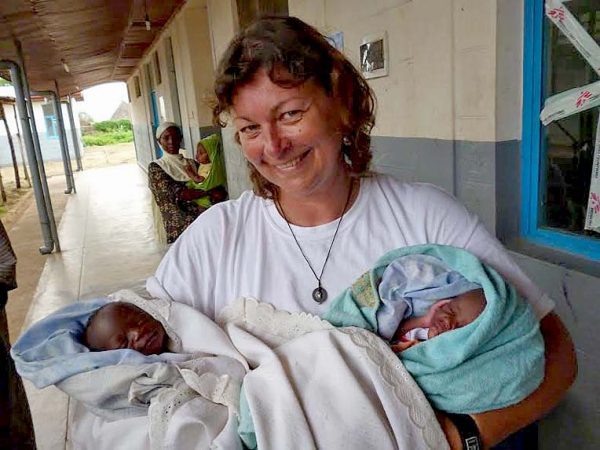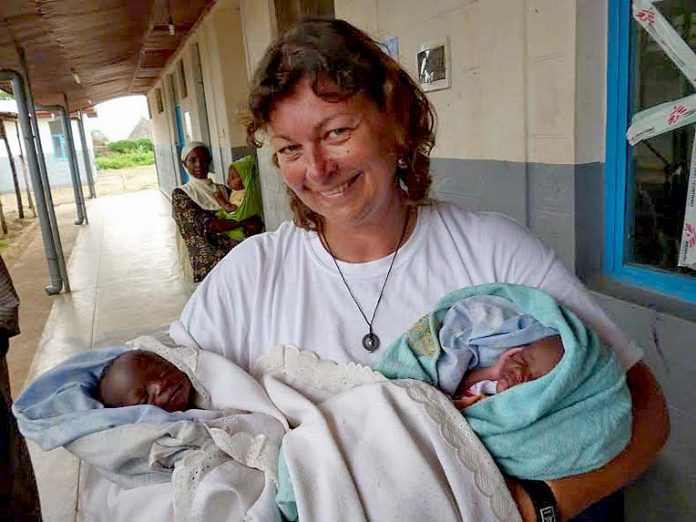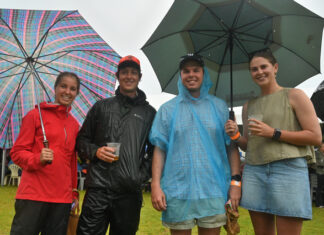
BATTLING conflict, crocodiles and rain in a small, open boat while taking a heavily pregnant girl to hospital in South Sudan, Kate Chapman knew she would not work in a “hospital setting” again.
As a child, the former Millicent nurse dreamed she would one day make a difference in the world, helping with natural disasters or humanitarian crises, even if it meant digging with her bare hands in the rubble.
Kate’s journey started at the Millicent and District Hospital as a kitchen hand, cleaner, porter and gardener before she applied for her bachelor of nursing in 1999.
From there she worked at Sheoak Lodge as a patient care assistant and then as a nurse in Mount Gambier and Hamilton before joining the Australian Vietnam Veterans Resconstruction Group (AVVRG).
As part of her involvement with AVVRG, Kate spent short periods of time in Vietnam over the course of three years, educating staff and working with human immunodeficiency virus (HIV) orphanages and clinics.
She then gained the confidence to follow her dream and volunteer for international medical humanitarian organisation Médecins Sans Frontières (MSF), also known as Doctors Without Borders.
“Their charter is close to my heart, I could have written it myself,” Kate said.
“My first mission with MSF was in 2011 as a field nurse supervisor in Point Pedro Sri Lanka.
“We provided a surgical program, ran the emergency department (ED) and implemented infection control.
“After the project closed, I moved to Mulliativu, this is where the war ended and was the site of the Sri Lankan killing fields where MSF was rebuilding a hospital.”
Volunteering as a field nurse manager in Mulliativu, Kate was responsible for the emergency department, operating theatre surgical wards, maternity, paediatrics, pharmacy and the mobile clinic – a role she described as very challenging.
“We were surrounded by land mines and restricted to only a few roads, strict curfews and a large volume of displaced, traumatised people living under sheets of tin and tarp,” she said.
“Our surgical ward was a tent and we were also working under the ever-watchful eyes of the armed soldiers who were not happy we were working there.”
In 2012, Kate served her last mission with MSF as a mobile clinic manager on the border of Ethipoa and South Sudan.
There she worked alongside local staff and ran mobile clinics each day in various locations, which she would travel to by boat or troop carrier.
With no doctors in the clinic, Kate was assigned to work as the senior clinician, a role she described as “great responsibility with limited resources”.
As a senior clinician, she was consulting and treating anywhere from 30 to 80 patients a day.
“We provided services to the displaced and vulnerable people, mainly the Neur population of South Sudan,” she said.
“Our focus was children under five, malnutrition and antenatal care – this was a very difficult mission as it was so remote.
“We had a rabies outbreak, treated many gunshots, machete, spear and club injuries, as well as diseases such as tuberculosis (TB), leprosy, HIV, tetanus, malnutrition and malaria.
“We got flooded in for three months, causing a huge outbreak of malaria, and in the end we were unable to help so many people due to the lack of supplies.
“I had to learn to say ‘no we cannot help you, there’s nothing we can do’ with simple medications and simple treatments that we would never think twice of here.
“With limited resources and operational priorities choosing who will and will not get treatment and who will live and who will die was hard.
“They may have carried someone for three days to get to your clinic under a tree on the banks of the Nile, just to hear ‘no, there’s nothing we can do’ and they would still say thank you just for spending the time to touch, to look and to care.”
Kate added a highlight of her time in South Sudan was taking a young girl in obstructed labour to a MSF hospital.
“We were travelling in a small, open boat in the rain for four hours,” she said.
“I did not think she was going to make it, it was very hairy as there was a lot of conflict along the way, not to mention crocodiles.
“We got there and she had an emergency caesarean with two live babies.”
Following her volunteer work with MSF, Kate returned home and accepted a permanent position as a remote area nurse (RAN) in a small Aboriginal community in Western Australia.
She has since worked in remote indigenous communities across the Kimberly and says she “loves her job”.
“I’m autonomous and I get to work in some of the most pristine, beautifully wild parts of Australia,” she said.
“It is very similar to humanitarian work, only with more resources, hope and opportunities.
“We do lead the world in a multitude of third world diseases, such as rheumatic heart disease, and we stand alone in leading the world in suicide, especially youth.”
Kate is currently studying the graduate certificate in applied child and adolescent mental health and hopes the skills she gains from the course will continue to help her make a difference.
Her next adventure is in the Gor-oka highlands, Papua New Guinea, taking medical supplies in for the clinic and teaching staff “the basics”.
Kate said nursing both nationally and internationally has helped her grow as a person and opened her eyes to experiences that other Australians may be “blinded” from.
“I have learnt how to deal with people I despise, calmly and effectively while having an MK47 pointed at me,” she said.
“I also did not realise how big the problems are and how corrupt the world is – I am an idealistic person with a passion for equal rights, but I know that it will never happen.
“I cannot change the world, but I can make a difference, one person at a time.”








